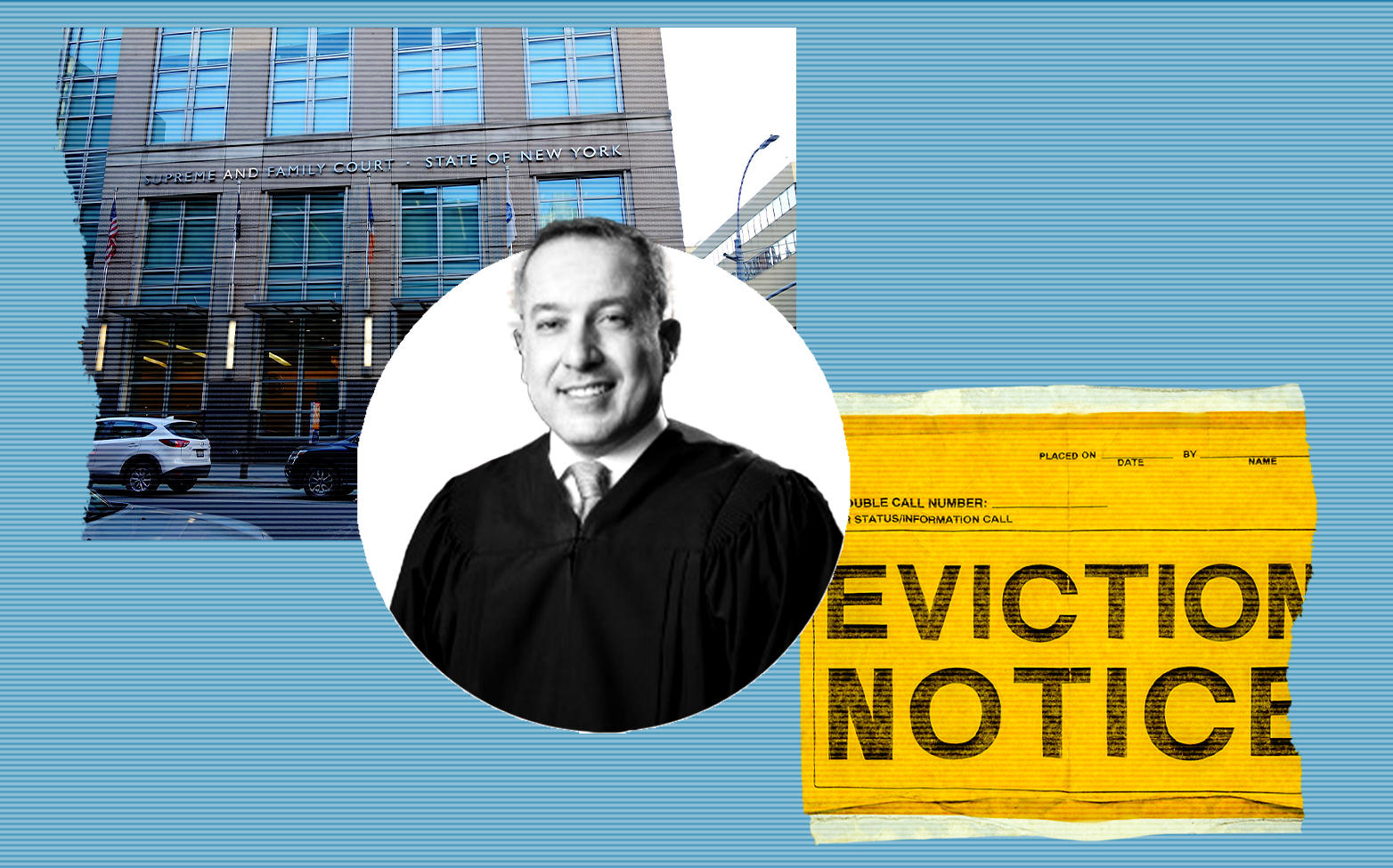Trending
 Lawmakers reach sweeping housing deal with “good cause eviction,” new 421a
Lawmakers reach sweeping housing deal with “good cause eviction,” new 421a “Investing before the ‘all clear’ sign”: Jon Gray on Blackstone’s $10B apartment deal
“Investing before the ‘all clear’ sign”: Jon Gray on Blackstone’s $10B apartment deal Tony Park and Elad Dror take a gamble on Koreatown office-to-resi conversion
Tony Park and Elad Dror take a gamble on Koreatown office-to-resi conversion Victor Sigoura picks up site of failed West Chelsea condo for $87M
Victor Sigoura picks up site of failed West Chelsea condo for $87MIn-person eviction trials to resume in Brooklyn
Housing court trials will resume July 27, with other counties to follow

In-person eviction trials will resume July 27 in Brooklyn, with other counties soon to follow.
Justice Anthony Cannataro, the administrative judge of the New York City Civil Court, which oversees the Housing Court, announced the move Thursday morning in an email sent to tenant attorneys. A spokesperson for the court confirmed that other counties will “follow soon incrementally.”
The first priority will be evictions that were on the calendar before March 16, when the initial statewide ban on evictions was put in place. (That ban has since expired.) Three courtrooms — which the judge described as “large and well-suited for social distancing” — at 320 Jay Street have been secured for such trials.
In a later statement, the court spokesperson added that pending holdover and non-payment proceedings are among the trials that will resume. He noted that although eviction trials can now move forward, they will “not necessarily” result in an eviction warrant or a judgment of possession.
“Whether and when those things happen depends on a very fluid set of directives from government and court leaders,” he added, acknowledging the confusion.
While eviction trials can resume in Brooklyn, questions persist for landlord and tenant attorneys.
“It’s very much unclear,” Nakeeb Siddique, Legal Aid’s director of Civil Practice in Brooklyn, said, referring to whether or not evictions can be executed. “This was all very unexpected by all quarters, landlord lawyers, tenant lawyers, the court even — as it’s unfolding. We’re on a merry go round. I can’t say I’ve ever encountered this disarray in the courts.”
The decision to restart in-person housing court trials comes after a month of mixed guidance from the courts on eviction proceedings. Guidance yesterday suggested that such proceedings would be stayed, even though the expiration of an executive order from Gov. Andrew Cuomo on Tuesday opened the door for some evictions to proceed.
Now, few restrictions on filing evictions remain, except those in place due to the CARES federal aid package, which prohibits evictions in properties with federally-backed mortgages. Multifamily properties with mortgages that are secured by Freddie Mac can seek forbearance from the agency, but cannot evict tenants during that time.
Legislation signed into law last week allows tenants to raise financial distress from Covid-19 as a defense against an eviction for non-payment — but it does not prevent the filing of evictions. The bill also prevents evictions from being executed for those tenants, and instead allows money judgments. Landlord attorneys have said granting money judgments is insufficient, while tenant advocates have said the money judgements will increase generational debt.
Landlord attorneys have decried the limits on evictions, which they say gives tenants carte blanche to withhold rent. Tenant advocates have warned that as many as 50,000 evictions could flood the notoriously crowded housing court system. That has not happened so far, mostly due to strong tenant protections that do not exist elsewhere in the country.
